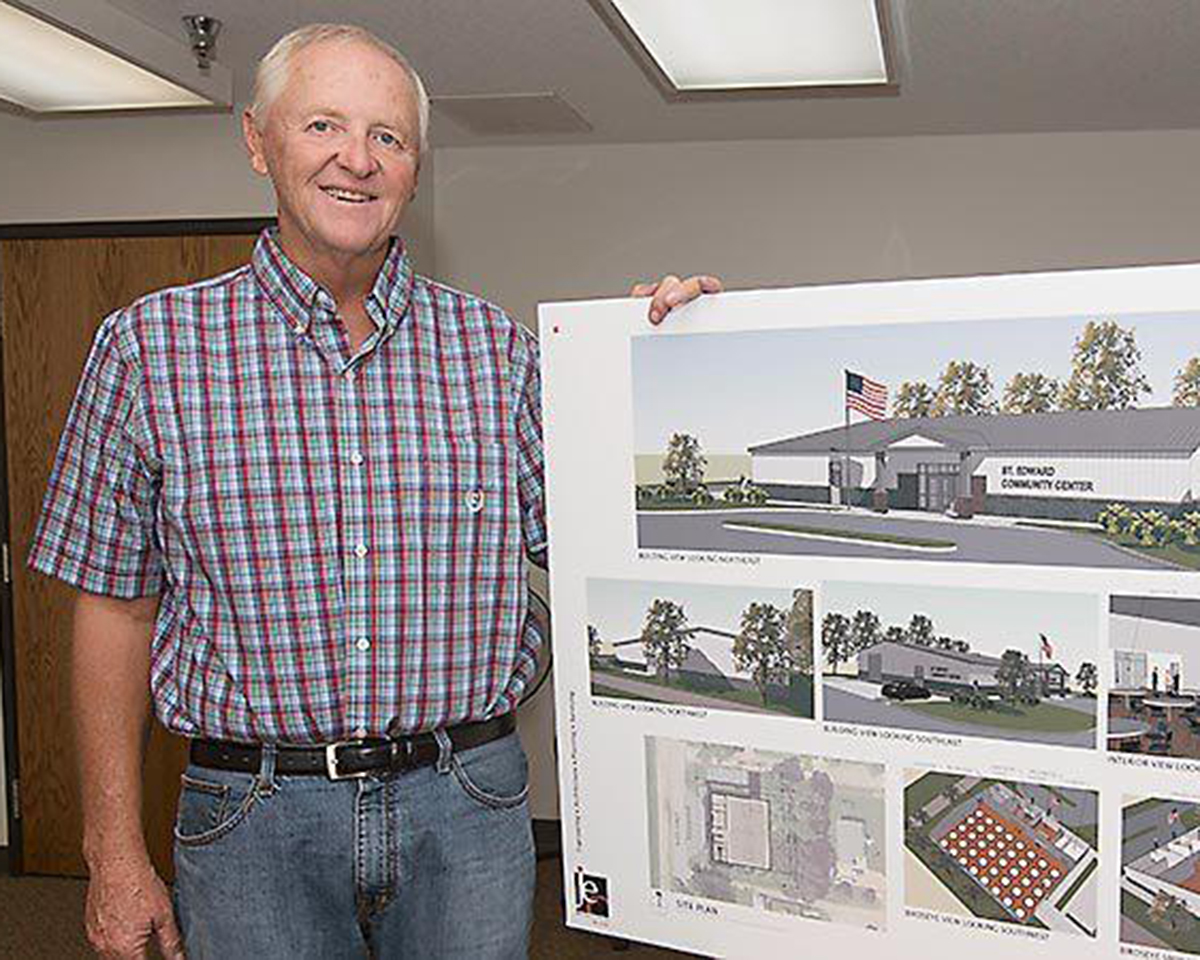
For a long time, the “experts” had been telling those of us who live on the Great Plains that unless we were located close to an interstate or near an urban center, there was no hope for the future of our small towns.
Sometimes the experts get it wrong.
In the 21st century, people living in small towns across Nebraska are learning how to embrace the future by building on their homegrown talents and resources. And through Nebraska Community Foundation, homegrown philanthropy is becoming an ever more important component of their progress.
This is a story about Holt County, with just over 10,400 people, located in north-central Nebraska. It’s about 100 miles north of Interstate 80 and 200 miles from the state’s major metro areas. It doesn’t have a four-lane highway. It is a place where small businesses, farms and ranches are the norm.
But something very special is happening in this otherwise typical county of small towns and villages.
Jon Schmaderer is president and CEO of Tri-County Bank, which serves the communities and surrounding areas of Atkinson, Bassett, O’Neill and Stuart. Schmaderer compares community-building with building a business.
“If you think of a business model, the best way to generate more business is to start with the people and the products you already have,” says Schmaderer. “It works in the business world. It works in economic development, and it’s worked for us.”
The key is to link together four critical resources that nearly every rural community – no matter how small – already has:
>> Leadership, to mobilize people with a long-term vision
>> Entrepreneurship, to support innovation and economic growth
>> Youth engagement, to cultivate a sense of belonging and opportunity
>> Philanthropy, to provide financial resources for economic growth and quality of life.
“What really changed things early on was our leadership program,” Schmaderer said. “It started back in 2005 in Stuart and Atkinson. It’s amazing how little you know about people who live just a few miles down the road. By the end of the 12-month process we were feeling pretty good about ourselves. There were a couple of really large projects that we needed each other’s help on, and coming out of the program, we felt that we could make it happen.
“Probably what made everything go a lot better than we expected was that young people – kids who went to high school together – were at the leadership classes from the start. They just energized us.
“Then we found out that O’Neill, the county seat, wanted to join in. At first, we thought, ‘No thanks—we’re good,’” Schmaderer said with a laugh. “But O’Neill started coming to meetings, and it was a wonderful experience. So, we started thinking about the leadership program as a county-wide thing, and it wasn’t long before all of the towns got together,” Schmaderer said. “The program has been offered every year since 2005.”
One thing special about Holt County’s HomeTown Leadership Institute is that it does not rely on outside “experts.” The curriculum is largely designed and delivered by local individuals, many who are graduates of the class.
Together with an expanded corps of young leaders, Nebraska Community Foundation facilitated discussions with elected officials, and in 2007, Holt County and its eight municipalities agreed to support a new Holt County Economic Development office and hire its first full-time executive director, Nicole Sedlacek.
“Nicole came from neighboring Boyd County. She was a radio personality, very personable and passionate. She could walk down the street in any of our towns and be right at home everywhere. I don’t know if she knew everything about economic development when she started, but she was the right person for the job,” said Schmaderer.
In less than two years, Holt County Economic Development helped 11 start-up businesses launch and nine businesses expand, which created or retained 110 jobs. It helped bring back 11 families and even more returned on their own.
After nearly 10 years at HCED, Sedlacek accepted a position with Nebraska Public Power District in 2016, and Darby Paxton of Stuart was hired as HCED’s new executive director. The tiny staff of three responds to inquiries from dozens of businesses each year, conducts on-site visits and provides assistance with loan packaging. Staff are deeply involved in dozens of other activities that include training, networking and fundraising.
The economic progress in Holt County shows that hometowns in Nebraska can indeed compete in a global economy. Since 2007:
>> There have been 145 new business starts, 44 expansions, and 29 successions.
>> Well over 450 jobs have been created, and more than 230 retained.
>> More than 475 individuals and families have moved to the county in the last 10 years.
Today, after decades of decline, population is stabilizing in Holt County.
As an affiliated fund of Nebraska Community Foundation, Holt County Economic Development can and does receive tax-deductible contributions in addition to basic support provided through the county and its municipalities. This model of public and private support has been extremely beneficial to the program’s financial stability.
One major source of funding comes from an endowment established by the late Rudolph Elis, a bachelor farmer from Verdigre. Elis believed in hard work, living within one’s means, saving and investing. He didn’t believe in hand-outs; he wanted to support communities that were growing and vibrant.
He recognized those characteristics in Holt County and Norfolk and established an endowment with Nebraska Community Foundation to provide funding for economic development, youth engagement and people attraction. The Elis endowment, valued at $2.3 million in 2009, has grown to $4.8 million as of June 2017, all the while providing grants totaling well over a half-million dollars to the communities whose people he admired.
The Elis Fund isn’t the only permanent endowment that helps make living in Holt County increasingly attractive to young families. Together with community-based endowments in Atkinson, O’Neill and Stuart, plus four other NCF affiliated funds, more than $5 million is currently endowed, fueling a growing, permanent revenue stream for making the good life even greater.
The successful collaboration among communities in Holt County has caught the attention of business and corporate leaders, as well. In June, representatives of NCF community funds throughout Holt County visited the Grande Prairie Wind Farm to accept an $80,000 contribution from BHE Renewables, the first of five annual distributions to benefit the respective community-based affiliated funds in Stuart, Atkinson, O’Neill and Chambers, and the Holt County Economic Development Fund.
Whether it’s economic growth, health care, recreation, or education, every community effort relies on people who are capable of making decisions that lead to positive action.
Hometown Leadership Institute, which is broadly supported by Holt County’s businesses and charitable funds, will conclude its 13th year this fall, with 175 graduates completing the program since 2005.
“It is really amazing to see all the people who have emerged from the leadership program who are now serving on all sorts of community boards and on our community fund advisory committees,” said Darby Paxton, executive director of Holt County Economic Development. “The knowledge and understanding of how our communities work is really remarkable. It’s great leadership preparation for the graduates.”
Every spring HCED staff members visit each graduating high school class in the county. Each student receives a full-sized, personalized mailbox with a reminder that they are always welcome home. Since 2007, 1,445 mailboxes with encouraging messages have been distributed.
The gesture is a friendly notice that a future in Holt County holds promise for young families. And the tactic just may be working. Avera St. Anthony’s Hospital in O’Neill is on track for delivering a record number of babies for the second year in a row.
There is a saying that circulates among communities that partner with Nebraska Community Foundation: “We don’t give our kids suitcases for graduation anymore.”



